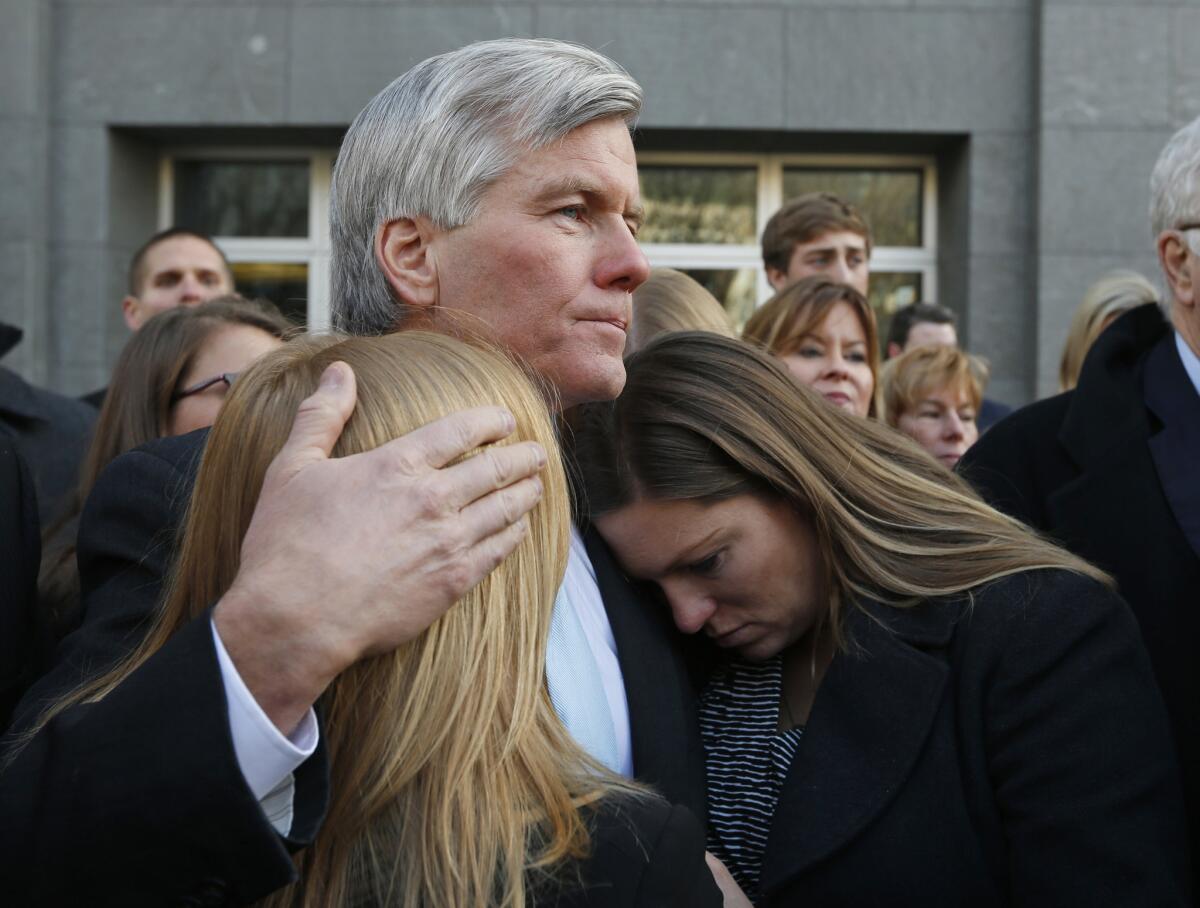Editorial: The Supreme Court should say no to Bob McDonnell

Former Virginia Gov. Bob McDonnell hugs his daughters after he was sentenced outside federal court in Richmond, Va. on Jan. 6, 2015.
The Supreme Court will be asked on Wednesday to reverse the corruption conviction of former Virginia Gov. Bob McDonnell essentially on the grounds that a businessman who plied the governor with cash and gifts in hopes of business from the state didn’t get his money’s worth. The court should decisively say no.
In 2014, a federal jury convicted McDonnell of extortion and fraud growing out of his relationship with Jonnie R. Williams, who wanted the state to assist in marketing Anatabloc, a dietary supplement produced by his company. Williams provided McDonnell, his wife Maureen (who was also convicted of federal crimes) and their family with more than $170,000 in cash and luxury goods. Williams testified that he provided the gifts because he expected McDonnell to “continue to help move this product forward in Virginia.”
Did McDonnell use his exalted position to try to help Williams? Yes, though not with the results Williams hoped for. Prosecutors established that the governor boosted Team Anatabloc in several ways, including arranging meetings for Williams with state officials, hosting events at the governor’s mansion to encourage researchers at state universities to study the main ingredient in Anatabloc and recommending that top officials meet with executives of Williams’ firm to discuss how its products might lower health costs.
Under a 2010 Supreme Court decision, officials can be prosecuted for “honest services” fraud only if bribes and kickbacks are involved. But the jury rightly concluded that there was such a corrupt relationship between the gifts and McDonnell’s conduct.
Yet now McDonnell’s lawyers are arguing that the governor didn’t perform “official actions” because he didn’t exercise or threaten to exercise “actual government power.” Rather, they argue in their brief, McDonnell’s actions “were limited to the most routine political activities: arranging meetings, asking questions and attending events.”
“This case,” they add melodramatically, “marks the first time in our history that a public official has been convicted of corruption despite never agreeing to put a thumb on the scales of any government decision.”
That’s utterly unconvincing. A public official can put his thumb on the scales in ways that go beyond signing a bill or appointing someone to public office. Allowing the governor’s mansion to play host to an infomercial for a financial benefactor’s business is an official act by any reasonable definition.
A ruling in McDonnell’s favor would embolden special interests and self-serving public officials alike — and strengthen the suspicions of many Americans that money calls the tune in the halls of government.
Follow the Opinion section on Twitter @latimesopinion and Facebook
More to Read
A cure for the common opinion
Get thought-provoking perspectives with our weekly newsletter.
You may occasionally receive promotional content from the Los Angeles Times.










